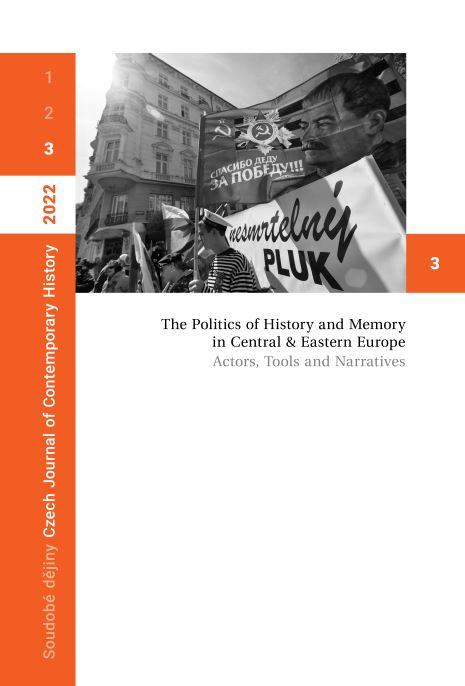Socialism as Ideology, Socialism as Legacy
Socialism as Ideology, Socialism as Legacy
Attitudes of the (Socialist) Republic of Slovenia Towards Its Socialist Past (1980–2004)
Author(s): Tjaša KonovšekSubject(s): History, History of ideas, Post-War period (1950 - 1989), Transformation Period (1990 - 2010), History of Communism, Post-Communist Transformation, Politics of History/Memory
Published by: AV ČR - Akademie věd České republiky - Ústav pro soudobé dějiny
Keywords: Yugoslavia;Socialist Republic of Slovenia;Slovenia;state socialism;late socialism;post-socialist transition;state holidays;politics of memory;historical politics;commemorations
Summary/Abstract: Focusing on key political actors and state institutions, this article aims to map the changing and often ambivalent political attitudes of the Socialist Republic of Slovenia (Socialistična republika Slovenija) within the Socialist Federal Republic of Yugoslavia and the later the Republic of Slovenia (Republika Slovenija) towards its socialist legacy. By institutionalizing remembrance and promoting specific historical narratives, the state not only articulated its views on the past, but also expressed its understanding of the present moment and its hopes for the future. The main channels of communication between the state and the public, which are investigated in this contribution, are state holidays and state celebrations. Here, the highest state institutions appeared as main organizers and scriptwriters. Through these events, leading politicians valued, assessed, and (re)interpreted significant historical events in the name of the state. The temporal framework of the article covers two crucial periods. First, the late socialist period between 1980 (the death of Josip Broz Tito) and 1989 (the beginning of the end of Yugoslavia). Second, the period of Slovene transition between 1989 and early 2008, when the Study Centre for National Reconciliation (Študijski center za narodno spravo) began its operation and Slovenia joined the institutional international trend of anticommunism. During late socialism, constant economic, political, and social crises forced the state to re-evaluate and reconsider its socialist legacy and its form. After the end of state socialism between 1989 and 1991 in Slovenia, (anti-)socialist attitudes became one of the most important political markers by which the new state defined itself. For both periods, socialism was thus one of the central themes of memory politics, albeit in different ways.
Journal: Soudobé Dějiny
- Issue Year: XXIX/2022
- Issue No: 3
- Page Range: 852-873
- Page Count: 22
- Language: English

